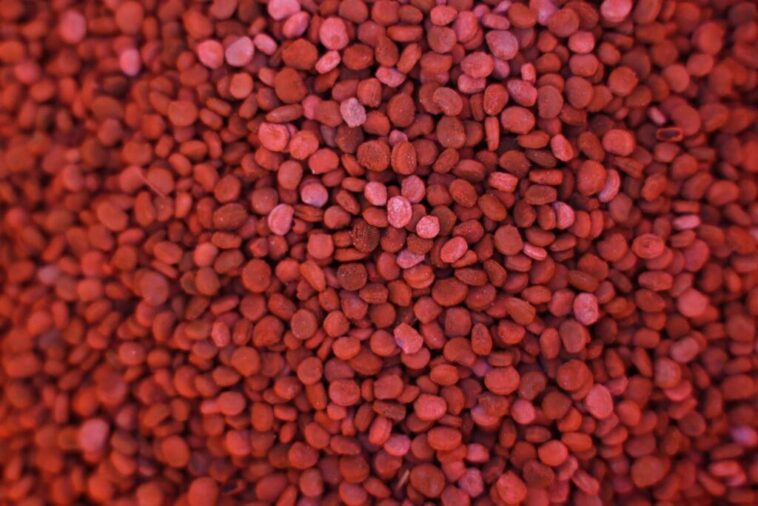Wisconsin plays a vital role in America’s ginseng production, boasting over 90% of the total yield. The central region of this state is home to more than 150 farmers dedicated to cultivating this crucial root vegetable. Wisconsin’s ginseng production hub is located primarily in Marathon County, an area recognized for its fertile land and favorable growing conditions.
This specific industry is one of Wisconsin’s most lucrative, injecting an impressive $40 million into its local economy annually. This significant economic boost predominantly originates from the Chinese market, as reported by Northwoods station WAEO in a previous feature. Ginseng’s popularity in China ensures a steady customer base for Wisconsin’s plentiful ginseng supply.
Leading the pack among producers is Ginseng Enterprises, based in Wausau. Recognized as one of America’s most significant ginseng exporters, Ginseng Enterprises is a heavy hitter in the industry, sending American-grown ginseng to markets worldwide.
However, in 2018, the domestic ginseng industry took a hit when the Trump administration increased ginseng tariffs from 12.5% to 42.5%. Later, in 2022, the Biden administration tempered the tariff rise marginally, lowering it to 32.5%. Despite this relief, the tariffs would soon rise again when Trump returned to office.
Trump’s second term witnessed a startling spike in ginseng tariffs, climbing as high as 66.5% by April. This abrupt increase had a dramatic impact on domestic growers, causing many clients to look for more affordable alternatives abroad. Will Hsu, the President of Hsu’s Ginseng Enterprises, expressed his concern about this troubling trend.
Hsu’s customers began cancelling their orders, opting instead to source their ginseng from Canada or from within China’s own borders. This decision was purely cost-based, as purchasing from these alternative markets proved much cheaper than sourcing from America due to high tariffs. Hsu voiced his frustration, equating the escalating situation to finding himself caught in a trade war.
Despite these adversities, the Wisconsin ginseng growers possessed a unique advantage: the distinctive ‘terroir’ of Marathon County’s soil and climate. This specific natural environment imparts a unique taste and flavor to ginseng, which has been preferred by customers for over a century.
Hsu, in an interview with Harvest News, paralleled this preference to wine aficionados’ predilection for the distinctive flavors of Napa Valley or France. Central Wisconsin has thus earned the moniker ‘The Napa Valley of American Ginseng’, encapsulating the region’s unique appeal when it comes to ginseng cultivation.
American ginseng enjoys a privileged position in traditional Chinese medicine due to its cooling or tonifying effects. This is markedly contrasted by the more robust, fiery Asian-grown ginseng. American ginseng, regularly sold dried but occasionally processed into teas and powders, has a distinctive herbal, slightly bitter taste that is prized in the market.
The price of the plant can reach $700 to $800 per pound when dried, reflecting its significant value in the global market. Unfortunately, the escalating trade tensions between the U.S and China during the Trump administration gave rise to significant tariffs on Chinese goods, which reached a striking 145%.
Responding to this move, China retaliated by imposing a tariff of 117% on U.S. produced ginseng. This tit-for-tat tariff war would see the Chinese tariff on U.S. ginseng rise to a staggering 147% by May. The grim scenario began to improve when the two nations agreed to halt the tariff war for 90 days in May.
During this brief respite, the import tax on ginseng decreased to the previous rate of 32.5%, in place since 2022. The pause provided a much-needed window for Hsu’s buyers to procure their ginseng without the hefty taxes, which Hsu strongly advocated for.
However, some organizations decided to maintain a wait-and-see approach, hoping for potentially better import tax rates as a result of ongoing trade talks between the U.S and China. This strategy left Hsu facing the challenging prospect of sitting on a significant surplus of unsold ginseng.
Hsu found his warehouse filled to the brim with boxes of dried ginseng waiting for buyers. Even more troubling was the fact the stockpile constituted over 80% of the 2024 harvest, which, if unable to sell to China, would remain unsold. Sadly, there was no other market capable of consuming such large quantities of ginseng.
Reflecting on this dire scenario, Hsu lamented, ‘There is no other market in the world that will consume this much ginseng.’ This statement encapsulates the profound impact of the tariffs and trade dynamics on the ginseng industry, affecting not only businesses and the economy but also the future of American ginseng.

